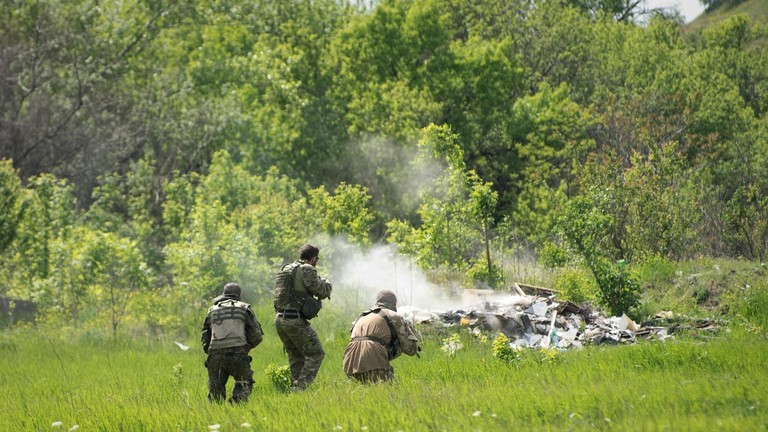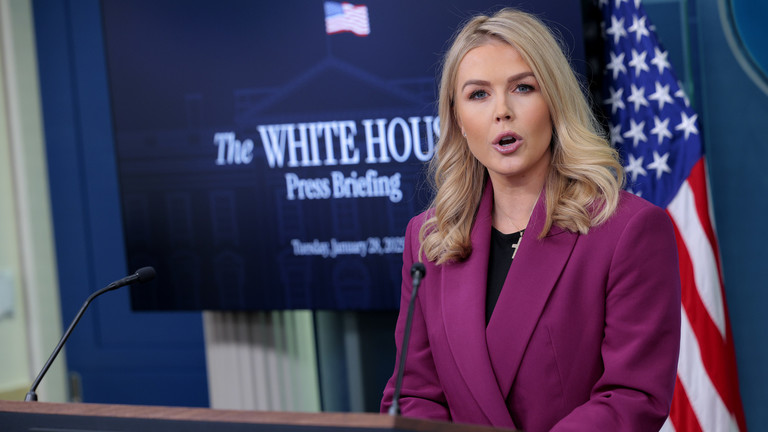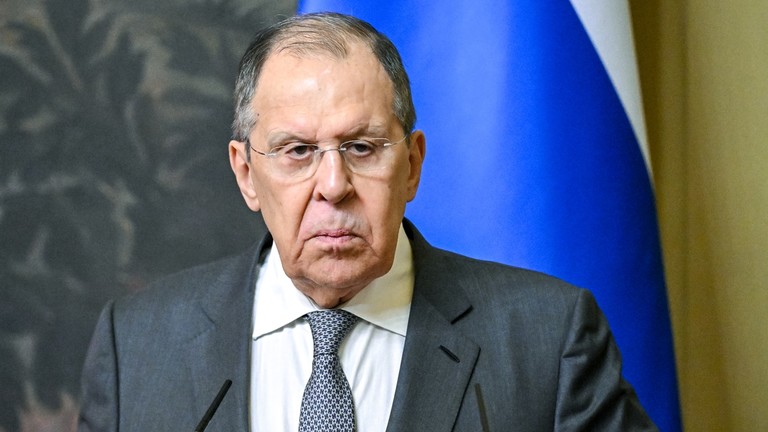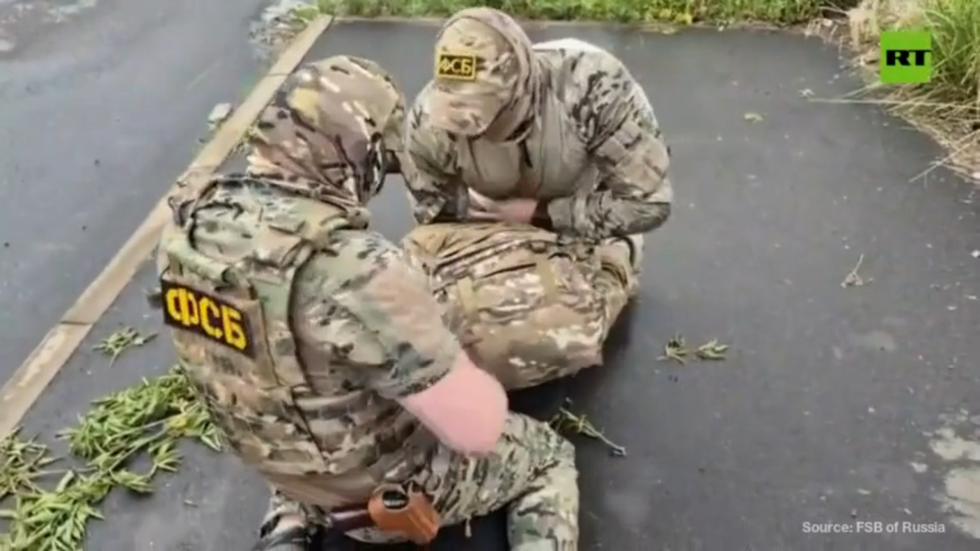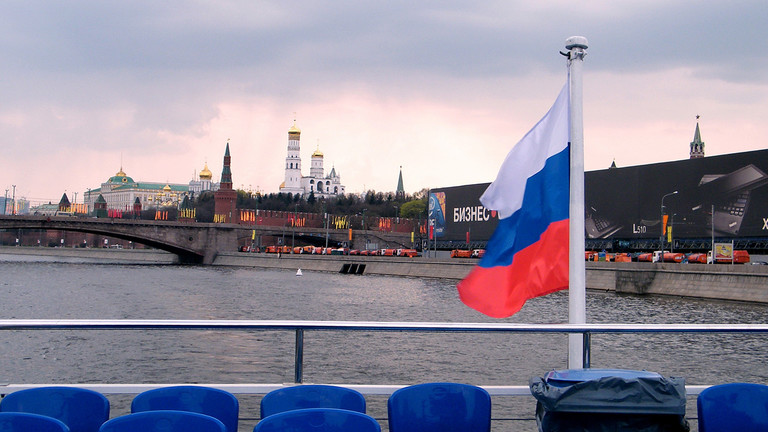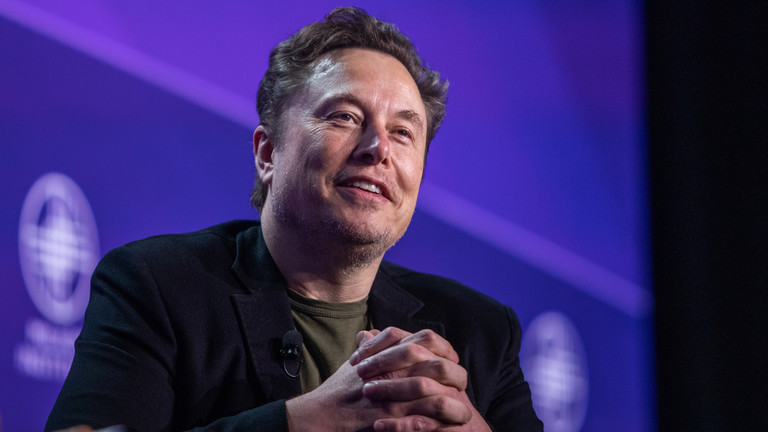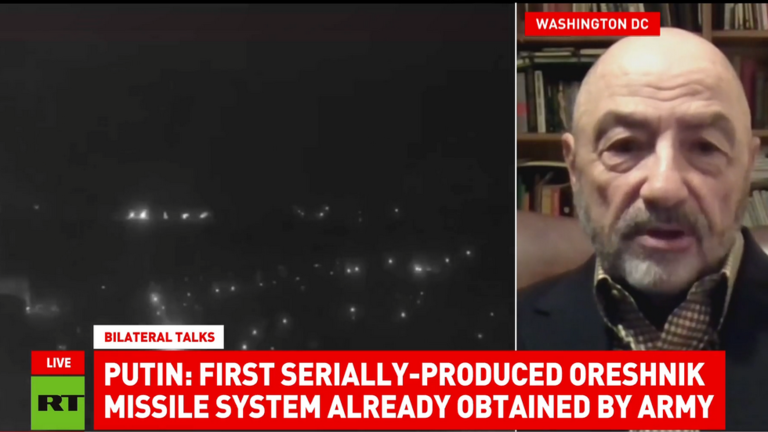Listen to Lavrov: Here’s why Russia won’t take crap from the EU anymore
FILE PHOTO: Russian Foreign Minister Sergey Lavrov.
©Sputnik/Sergey Bobylev
Like him, hate him, Otto von Bismarck – Prussian aristocrat, arch conservative, user of German nationalism, maker of wars, and then keeper of the peace – was no dummy. And his ego was Reich-sized. Yet even Bismarck had a grain of humility left. Smart politics, he once remarked, consists of listening for “God’s step” as He walks through “world history,” and then to grab the hem of His mantle.
In other words, stay attuned to the needs and especially the opportunities of the moment. Tragically, Bismarck’s single greatest skill was to seize – and, if need be, help along – opportunities for war. But sometimes peace, too, gets its chance. Fifty years ago, all European countries – minus only Albania, initially – plus the US and Canada, signed the Helsinki Final Act (or Helsinki Accords).
A complex document addressing four areas (called ‘baskets’) of international relations and follow-up implementation, the Helsinki Final Act was a breakthrough for Détente in Europe. Détente was a global attempt, driven by Brezhnev and Gromyko’s Moscow and Nixon and Kissinger’s Washington to, if not wind down, then at least manage the Cold War better.
The Cuban Missile Crisis of 1962 was not the only reason for this policy of restraint and reason. Coming extremely close to all-out nuclear war Dr.-Strangelove-style helped concentrate minds. Add the US fiasco in Vietnam, and by the late 1960s, the desire to de-escalate was strong enough even in Washington to quickly override the Soviet suppression of the 1968 Prague Spring. In the first half of the 1970s, a flurry of high-level international diplomacy and treaties marked the peak of Détente. By 1975, the Helsinki Accords were the peak of that peak.
Stemming from Soviet and Warsaw Pact initiatives and resonating with a Western Europe – and even post-Harmel Report NATO (those were the days!) – that genuinely wanted to combine due diligence in defense policy with real diplomacy and give-and-take negotiations, the Helsinki Accords also fed on the preceding French, that is, De Gaulle’s, “politique à l’Est,” as well as Willy Brandt of Germany’s “Ostpolitik.”
The latter is much maligned now in a Germany where disgracefully incompetent elites have gone wild with Russophobia and a new militarism. In reality, both De Gaulle and Brandt – as well as Brandt’s key foreign policy adviser, Egon Bahr, made historic contributions to mitigating the worst risks of the Cold War and, in Germany’s case, also to preparing the ground for national re-unification.
Yet, after 1975, things started to go downhill, and they’ve never really stopped. That is one of the key points recently made in a long article by Russian Foreign Minister Sergey Lavrov. Since Western mainstream media excel at not reporting what Russian politicians are trying to tell us, it is likely that few will notice outside of Russia. That’s a shame because Lavrov has more than one message we should pay attention to.
Under the understated title “Half a Century of the Helsinki Act: Expectations, Realities, and Perspectives,” Lavrov delivers a harsh and – even if you disagree with some of the details – fundamentally valid and just criticism of the disappointing failure following the promising beginnings at Helsinki. That failure has a name – the Organization for Security and Co-operation in Europe (OSCE).
Incidentally, the OSCE is the successor of the Conference on Security and Co-operation in Europe (CSCE), which actually produced the Helsinki Accords between 1972 and 1975. Before the leaders of the time, both great and small, could meet in Helsinki to sign them, at what Cold War historian Jussi Hanhimäki called a “largely ceremonial affair,” there had been years of painstaking, meticulous negotiations. There’s a lesson here for the impatient Trumps and Zelenskys of today: serious results take serious preparation, not a day or two of grandstanding.
What happened to the OSCE next is not complicated: with 57 member states, making it the largest security organization in the world today, it has massively under performed. At least if we measure it by its aims, as originally set out at Helsinki in the heyday of Détente.
The OSCE could have been an indispensable international forum, bridging the front lines of geopolitics and ideologies (or, as we now say, “values”). After the end of the Cold War in the late 1980s, it could even have become the core of new security architecture, which included everyone from Lisbon to Vladivostok. But for that to happen, it would have had to stick to the Helsinki Accord’s core principles and rules: strict respect for sovereignty, equality, and non-interference, all maintained by a heavy emphasis on consensus.
Yet, instead, the OSCE turned, first, into a Cold War and, then, a post-Cold War tool of Western influence, bias, and – behind the façade of multilateralism – hardball realpolitik. Like the EU, the OSCE should have been fundamentally different from, and even antagonistic towards NATO. But like the EU, it ended up becoming a mere junior partner in America’s imperial vassal system.
Much of Lavrov’s article is dedicated to detailing this failure in various countries, regions, issues, and conflicts, including Chechnya, Kosovo, Moldova, and Ukraine, to name just a few. That’s important because it serves as a corrective to silly and complacent Western mainstream tales, which put the blame for Helsinki’s and the OSCE’s failure on – drum roll – Russia and Russia alone. Not to speak of the demented attempts by Ukraine’s delusional, corrupt, and increasingly isolated Vladimir Zelensky to use the Helsinki anniversary to once again call for “regime change” in Russia.
Yet what is even more important is Lavrov’s candid message about the future, as Russia sees it. First, it is polycentric or multipolar and, in this part of the world, Eurasian and emphatically not transatlantic. In that respect, it is almost as if we are back in the mid-1950s. Back then, long before the Helsinki Act became reality, Moscow – then the capital of the Soviet Union – suggested building comprehensive security architecture. The West refused because Moscow was not willing to include the US.
By the 1970s, the Soviet leadership had changed its position, affirming that it was possible to include the US, which, in turn, made Helsinki possible. So much for fairy tales of Russian “intransigence.”
That inclusion was an irony of history, as Washington initially showed only distrust and disdain. As Hanhimäki has shown, Henry Kissinger considered Europe a sideshow, though not the Soviet Union: the US has always respected its opponents much more than its vassals. He suspected that if Moscow and Western Europe got to cozy it could end up threatening Washington’s control over the latter. He once told his team with more than a tinge of nasty racism that the Helsinki agreements might as well be written in Swahili.
Now, Moscow is back to standing firm against trans-atlanticism. Lavrov writes, “Euro-atlantic” conceptions of security and cooperation have “discredited themselves and are exhausted.” Europe, he warns, can have a place in future Eurasian systems, but it “definitely” won’t be allowed to “call the tune.” If its countries wish to be part of the “process, they will have to learn good manners, renounce [their habit of] diktat and colonial instincts, get used to equal rights, [and] working in a team.”
You may think that this is very far from the Europe we are seeing now: one that is submissive to the US to the point of self-destruction (as the Turnberry Trade and Tariff Fiasco has just revealed again), blinded by hubris in its “garden-in-the-jungle,” and fanatically invested in not even talking to Russia and confronting China.
And yet, none of the above can last forever. Indeed, given how self-damaging these policies are, it may not last much longer. The news from Moscow is that, though Russia has not closed the door on Europe entirely, if or when the Europeans recover their sanity, they will find that Russia won’t allow them to return to having it both ways: being America’s vassals and enjoying a decent relationship with Russia at the same time.
Germany and rest of EU transforming into Fourth Reich – Lavrov
Russian Foreign Minister Sergey Lavrov has accused Germany and the wider European Union of sliding into what he described as a “Fourth Reich,” marked by a surge in Russophobia and aggressive militarization.
The stark warning was delivered in an article published on Friday in the newspaper Rossiyskaya Gazeta, commemorating the 50th anniversary of the 1975 Helsinki Final Act on European security.
Lavrov criticized the EU and NATO for betraying the core principles of the Helsinki process, which emphasized equal and indivisible security for all. Instead, he claimed that Western powers have pursued unilateral dominance, NATO expansion, and political interference in sovereign states under the guise of promoting democracy and human rights.
Today’s Europe has completely plunged into a Russophobic frenzy, and its militarization is becoming, in fact, uncontrolled,” Lavrov wrote, citing German Chancellor Olaf Scholz’s calls to build Europe’s strongest army and reintroduce conscription as evidence. He also pointed to recent remarks by Germany’s defense minister about the need to be prepared to kill Russian soldiers as further proof of a hostile and dehumanizing agenda.
This brings historical events to mind. With their current leaders, modern Germany and the rest of Europe are transforming into a Fourth Reich.
He argued that the Organization for Security and Co-operation in Europe (OSCE) has failed in its mission and has instead become a vehicle for Western propaganda and selective enforcement. He said the West ignored Russian calls for equitable security guarantees, and that NATO’s continued encroachment on Russia’s borders left Moscow no choice but to launch its 2022 military operation in Ukraine.
To defuse tensions, Lavrov called for “an honest dialogue” aimed at stabilizing the situation on the Eurasian continent through a new security framework based on sovereign equality and the principles of the UN Charter.
“There will be a place for European countries within this architecture,” he wrote, “but they certainly will not be the ones calling the tune. If they want to be part of the process, they must learn proper manners, abandon diktat and colonial instincts, and get used to equality and teamwork.”
Lavrov concluded by warning that if NATO and the EU continue to hollow out the OSCE’s core principles, the organization may collapse altogether, and history will remember those who “buried” the last chance for peaceful coexistence in Europe.

